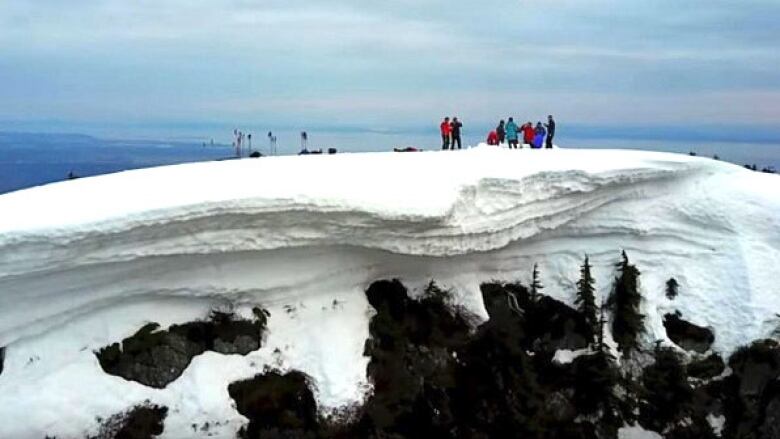Safety over selfies: North Shore Rescue urges photo-happy hikers to consider risks
'They're very naive to the dangers,' says Mike Danks of some hikers

North Shore Rescue (NSR) is urging hikers who post photos of their adventures online to make sure their followers are also aware of the dangers posed by Vancouver's local mountains.
"If you're going to post that great picture and you're going to give a little bit of information about the hike, if you can throw in the extra safety tips, that would make a huge difference,"NSR team leaderMike Danks told CBC's On the Coast host Stephen Quinn.
"It's not a hard thing to do."
Ignoring risks
Danks' theory is that when people see scenic wilderness photos on social media, they're persuadedto find their own remote piece of mountain paradise, concerned more with the perfect selfiethan with the safety risks involved in getting it.
"I think there are a lot of people that are getting out into the back country that are very, very inexperienced and they don't have the proper equipment on.
"They haven't done the research into the hike that they're doing, and they're very naive to the dangers," he said.
Cornice dangers
As an example, Danksreferred to a photo that gained traction onlinelast weekdepictinga group of hikers standing on the edge of a cornice atop a mountain in the North Shore's Cypress Bowl ski area, unaware that below theice and snow was open air.

That group wasunharmed, but Danks saysNSR has been deployed on several other calls recently where hikers faced serious danger.
"The last couple rescues ...people were just absolutely overwhelmed in the terrain that they were in, they were not fit to do the hike, and it put a big stress on our team," he said.
Use common sense
He reminded hikers that common sense is key. Before setting out on a hike, make sure you're sufficiently trained, equipped, educated, and physically prepared for the journey. And always tell someone where you'll be.
"I don't think we're trying to dampen [the fun]down, we're trying to be realistic, and we're trying tosave lives," he said.












_(720p).jpg)


 OFFICIAL HD MUSIC VIDEO.jpg)
.jpg)



























































































